
- Tutoring Coming Soon

5CO03 Assignment Example
- December 18, 2021
- Posted by: Harry King
- Category: CIPD Level 5

Task One – Conference Presentation on ethical practice in business
Your manager has asked you to prepare a presentation in readiness for delivery to colleagues on the importance of ethical practice and the business case for such people practices. Your Presentation Pack must include presentation slides, the evidence you have gathered, and presenter notes. It is expected that your presentation pack is aimed at the appropriate audience and is of business format.
You should ensure that your presentation includes a review of the various influences on ethical practice as well as details of a robust business case for the ethical people practices. You also need to provide a Briefing paper as a handout for delegates covering the main points of the presentation in an accessible, easy to read way.
Your presentation should include the following and should refer to the CIPD Profession Map wherever appropriate:
- Define the term professional and explain the requirements of a people professional. (1.1)
- To help explain what is meant by ethical values, give at least three examples of your own personal values and how this affects how you work and develop working relationships. (1.2)
- Contributed to discussions to ensure people practices are
- How you can effectively communicate to engage and influence
- How you might raise issues with situations such as organisational policies or the approach to leadership that conflict with legislation or ethical values. (1.3, 5)
- Drawing on relevant theory provides a robust argument that includes both the business and human benefits of people at work feeling included, valued and that they are being treated fairly (2.1)
- Identify a people practice initiative that has been put in place in response to some form of internal or external feedback, set out the purpose of this initiative and explain how you would evaluate the impact of this initiative paying particular attention to levels of engagement within the organisation. (2.2, 3)
Task Two – CPD portfolio
The purpose of this task is to evidence your approach to Continuous professional development as a people practice professional in conjunction with the CIPD Profession Map. The task combines a number of activities which should be presented as a CPD portfolio.
As an introduction to your portfolio it is important to set the scene to your personal learning journey.
Activity 1 – The Context of Professional Development (3.1)
Explain the following;
- How the role of a people professional is changing?
- What impact are these changes having on our CPD?
- What are the key characteristics of a good-practice CPD?
Activity 2 – Self Assessment
The first stage of your CPD should be to understand where you’ve come from, where you are and where you want to be.
- Using the Standards from the CIPD Professional Map, carry out a self-assessment of your competency against the core behaviours identified, a suggested format is provided. this can be in any format, but evidence is required to support this activity took place (an example template is provided in Appendix 1 ).
- From this Self-assessment, plus other forms of feedback identify your strengths and weaknesses setting personal development objectives to be included within a Professional Development Plan (3.2).
- You now need to consider how you can meet these development objectives, to complete your PDP. Consider the range of learning opportunities available to you and for each development objectives decide on the most appropriate initiative to support your learning journey. (3.3)
Activity 3 – Reflective practice
A key element of our PD is reflecting on our everyday experiences to learn from these, capturing what went well or not so well and how we can learn from such situations.
Your reflections should focus on the following scenarios.
- Identify times when you have taken responsibility for your work/actions, paying particular attention to recognising any mistakes you might have made, how you rectified these mistakes and what you believe you learnt from these experiences. (1.4).
- Identify at least two examples that highlight your approach to working inclusively, plus how you have built positive working relationships with others. Your reflections need to focus on what you did, and the skills and behaviours demonstrated. (2.4)
Activity 4 – assessing the impact of your learning and CPD.
The final part of our CPD is to measure the overall impact of our learning. To achieve this, you need to think about and capture the impacts, covering positive as well as negative. What was the impact on you, your team, your colleagues, your customers, your stakeholders, the organisation or your
department? To support this assessment, you will need to complete a record of your learning for the last 12 months (3.4).
Conference Presentation on Ethical Practice in Business
Welcome to this presentation on the ethical practices in business. This is an issue that highlights the significant issues, behaviours, norms, and practices that people professionals should relate to in their career goals.
I will start by defining professionalism; this is a term describing people who have gone through training and gained formal education experience. People gain credibility in their profession, which is an attribute that results to individual improved performance in their different professional areas.
The requirements of people professionals are that it enable development of people, people practices, and increases experiences of work among the employees. People professionals and other professionals are guided by the CIPD Professional map, which identifies the core knowledge, core behaviours, and specialist knowledge areas that guide them in their careers and the next strategic actions. These aspects champion for a good work and working environment for the people and within the organisation. People professionals are therefore required to be fully involved in the process of influencing others to build better work experiences for all people.
The requirements of a people professional are;
- They uphold professional ethical standards
- They take a strategic expert approach
- Work with teams and recognizes their contributions to performance and achievement of organisational goals.
After explaining the people professionalism concept, the next section will develop insight on the ethical values among professionals in the business. Ethical values define behaviour among professionals, evaluate the rightfulness or morality of decisions made, determine the norms that guide professionals to right behaviours and culture in their places of work. Ethical values determine the support taken to address dilemmas and different organisational issues. Ethical values are meant to ensure that professionals follow the standards and integrity expected of them in delivery of the right practices in workplace. The ethical values help explain the extent to which action is taken to support all the different people professional functions and ensure that employees are not discriminated, harassment, of treated unfairly. Ethical values guide professionals’ behaviours and engagement in delivery of their practices and different organisational functions.
My personal values and how they are applied in context of professionalism include:
- Value of integrity
- Empowering others
- Responsible leadership
These values are applicable in the context of professionalism where I take responsibility in ensuring that I am honest and truthful in all the actions that I engage in. I demonstrate integrity when working with others, which allows me to develop right ethical behaviours that help me navigate through the ethical dilemmas I experience in my line of work. Empowering others involves engaging others in the decision-making process. This is a value that creates opportunities for people to voice their issues and ideas that affect them and their work. Responsible leadership is an ethical value that determines my capability in influencing others. I am a person who leads by example, encourages others, and holds them accountable for the actions that they engage in. I am a person who accepts responsibility when I make mistakes, and I consider this to be an attribute that promotes my capability to becoming the best role model to others. With these personal values, I have been able to effectively complete my work duties and responsibilities.
I make use of the above mentioned and explained personal values to apply to people practices to ensure that I follow the code of ethics, communicate with others to improve levels of engagement and influence others to promote people capability to work and deliver best results. The application of professional integrity to people practices determines the values, norms, and behaviours that shape an ethical culture. Organisation’s code of ethics guides people’s behaviours and actions. Engaged and motivated workforce is led by people with leadership qualities and effective management of organisational policies that create value for the people and for the organisation.
Having discussed the concepts of professionalism and ethical values, I will focus on explaining the issue of inclusion in organisations. Inclusion means accommodating, respecting, and appreciating all people without looking into their protected characteristics. It is a professional role in ensuring that all people are treated equally and fairly. Inclusion allows professionals to perform to their full potential without discriminating against anyone based on the protected characteristics. The benefits associated to creating an inclusive culture include; creating an environment where
Employee retention is enhanced and building a positive corporate reputation. Inclusion eliminates negative behaviours that experiences that people might face is their places of work. Leaders should take advantage of the diverse groups of people who work together to deliver the different organisational goals and objectives. Leaders in supporting a diverse culture benefit from personnel who by supporting diversity and inclusion become more committed to working in the organisation. People inclusion creates a positive organisational brand that attracts qualified and competent talent and helps organisations gain competitive advantage.
External and internal feedback affects the organisational operations as well as the decisions made by different professionals. Initiatives that people professionals should consider include communicating on the relevant issues. Feedback determines the relations between the employers and employees, and the manner in which employers treat employees determine the professionalism impact in organisations (Shanock et al., 2019). Communication is a process where information is exchanged, and the respondent have to act on it and ensure that they provide the relevant feedback. Communication gives all professionals in an organisation an opportunity to voice their concerns. Through this they get to react to the information that is passed on to them. Good communication platforms improve engagement levels. People professionals respond to external and internal organisational feedback by accepting the trends experienced as a result of the changed nature of work. For example, on the issue of coronavirus, people professionals should be ready to adapt to the new work patterns and people relations to support the organisation and people. The initiative to comply with legal regulations and organisational policies is significant in helping people professionals respond to external and internal feedback. This is important in helping professionals respond to the legal needs of the employees within and out of the organisation.
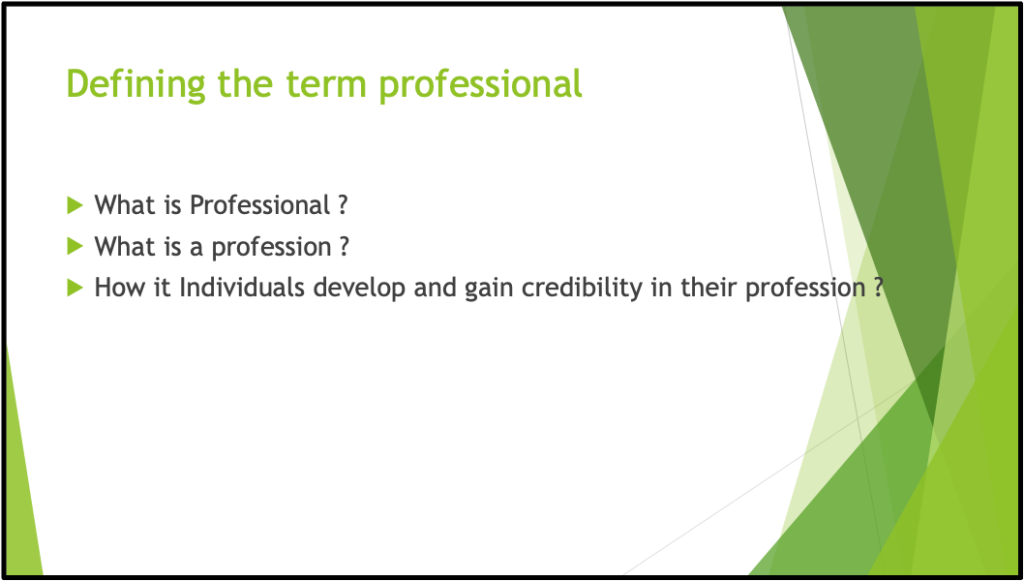
- Professionalism: this is a term describing people who have gone through training and gained formal education experience. People gain credibility in their profession, which is an attribute that results to individual improved performance in their different professional areas. The role of HR is in continuous development cause to social progress, economic and work condition changes. In the last few years, the role of Strategic Partner was born. It is an HR professional that through knowledge, behaviours, and professional skills, can influence the board of director’s decisions and the business direction.
- Professional is a term used to describe people who have gone through training and gained formal education experience. The HR Professional is defined as a Thinking performer, who proposes new ideas based on his knowledge and the principles: added value, improvement, cost reduction, and efficiency. This model was developed from the CIPD in which the levels of effectiveness and efficiency are combined, and a Thinking performer has a high level of both characteristics.
- A profession is a job that an individual works in after going through training, and professionals get a living from the job that they work in.
- Individuals develop and gain credibility in their profession, which is an attribute that results to individual improved performance in their different professional areas.
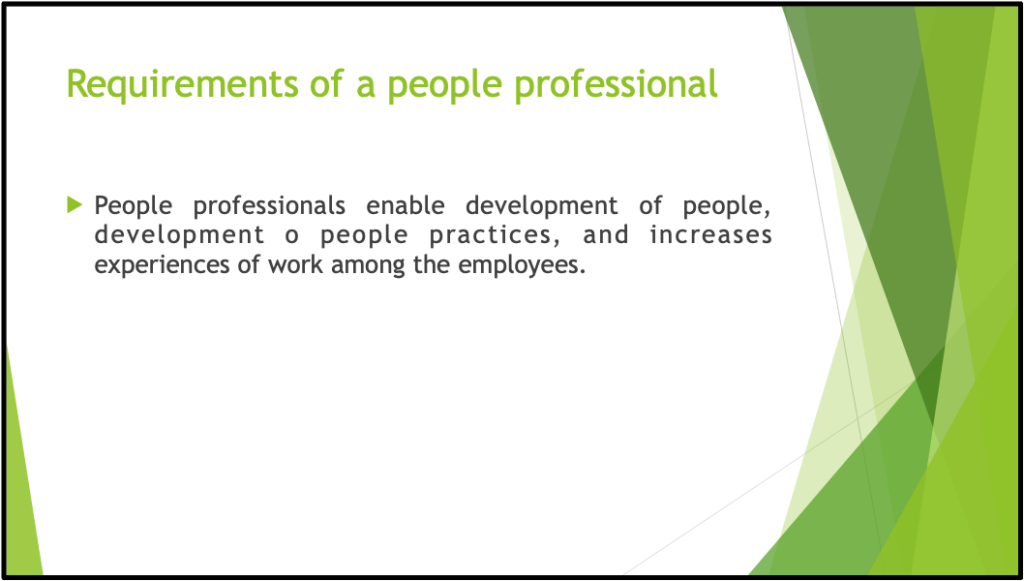
People professionals are guided by core knowledge, core behaviours, and specialist knowledge areas that guide them in their careers and the next strategic actions.
- Work with teams and recognizes their contributions to performance and achievement of organisational goals.
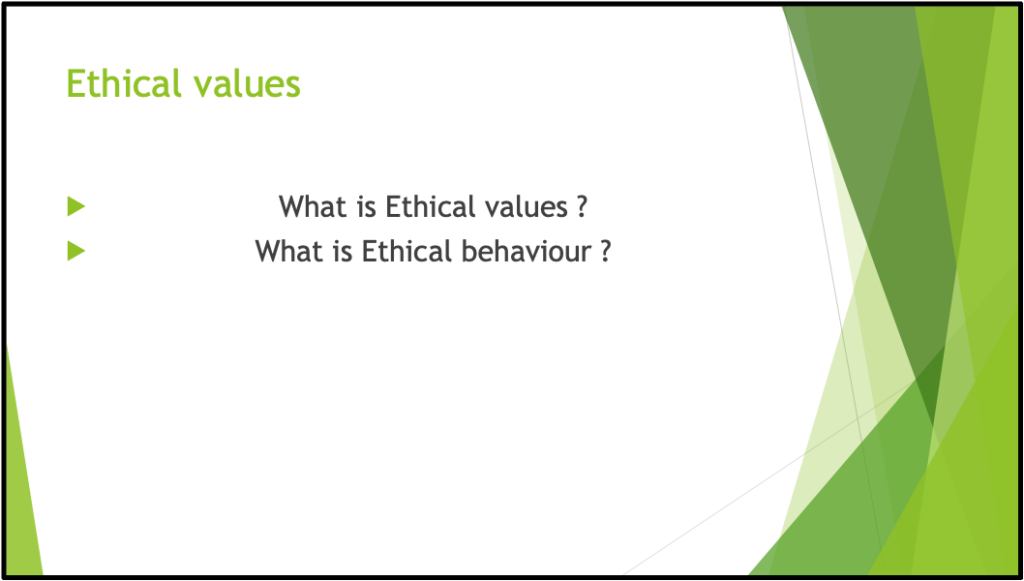
- Ethical values are the conduct, practices and techniques that define behaviour among professionals in the organisation.
- Ethical behaviour is a core concept that determines the rightfulness or morality of decisions made.
- Ethical values influence norms that determine the right behaviours and culture that professionals develop in their places of work.
- Ethical values determine the support taken to address dilemmas and different organisational issues.
An example of my personal values and how they are applied in context of people practice,
- Value of integrity , Empowering others and Responsible leadership
1.3 & 1.5
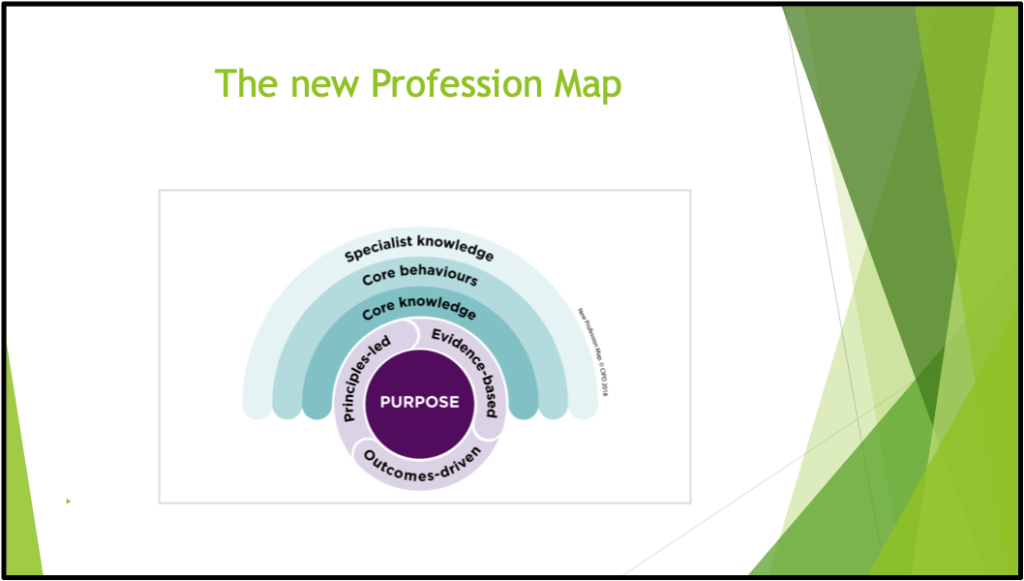
People practices are guided by organisation’s code of ethics, Communicating to engage and influence others is an aspect that determines people capability to work and deliver best results to support organizational success. Discussin the concepts of professionalism and ethical values, and focus on explaining the issue of inclusion in organisations. Inclusion means accommodating, respecting, and appreciating all people without looking into their protected characteristics. It is a professional role in ensuring that all people are treated equally and fairly. Inclusion allows professionals to perform to their full potential without discriminating against anyone based on the protected characteristics. The benefits associated to creating an inclusive culture include; creating an environment where employee retention is enhanced and building a positive corporate reputation. Inclusion eliminates negative behaviours that experiences that people might face is their places of work. Leaders should take advantage of the diverse groups of people who work together to deliver the different organisational goals and objectives. Leaders in supporting a diverse culture benefit from personnel who by supporting diversity and inclusion become more committed to working in the organisation. People inclusion creates a positive organisational brand that attracts qualified and competent talent and helps organisations gain competitive advantage.
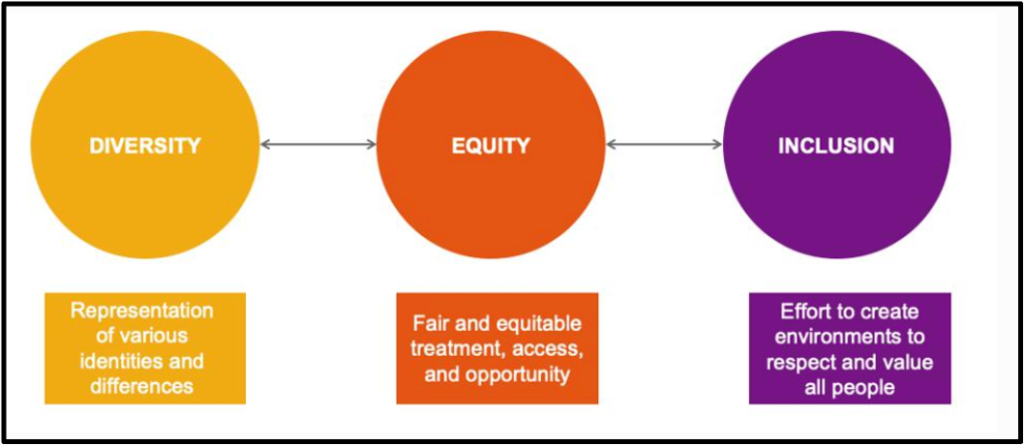
Ensuring employee satisfaction makes them produce more and better, reduces staff turnover, increases team engagement, makes the work environment lighter, and attracts new talent to your company, among others. Moreover, an engaged staff contributes a lot to the evolution of the company’s organizational structure.
Inclusion is the acknowledgement of people’s differences. It is about creating a culture and an environment where all professionals feel they belong. Inclusion allows professionals to perform to their full potential without discriminating against anyone based on the protected characteristics.
Benefits of diversity and inclusion are:
- Enhances retention of talent to support organizational performance
- Builds a positive corporate reputation.
2.2 & 2.3
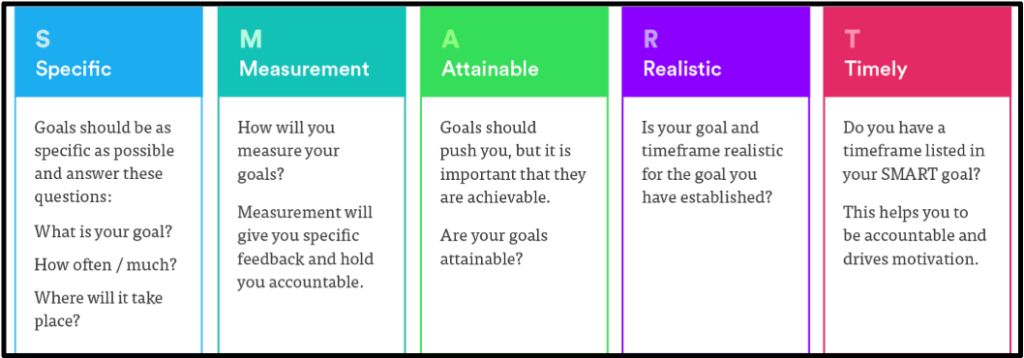
- People professionals should make communication more relevant and keep being focused on people
- Accept new trends from the changing nature of work. Ensure that HR comply with legal regulations and organisational policies.
- Feedback determines the relations between the employers and employees, and the manner in which employers treat employees determine the professionalism impact in organisations (Shanock et al. 2019). The initiative to comply with legal regulations and organisational policies is significant in helping people professionals respond to external and internal feedback. This is important in helping professionals respond to the legal needs of the employees within and out of the organisation.
- People professionals respond to external and internal organisational feedback by accepting the trends experienced as a result of the changed nature of work. For example, on the issue of coronavirus, people professionals should be ready to adapt to the new work patterns and people relations to support the organisation and people. The initiative to comply with legal regulations and organisational policies is significant in helping people professionals respond to external and internal feedback. This is important in helping professionals respond to the legal needs of the employees within and out of the organisation.
Changing role of people professionals
Changing professional roles of people professionals in the contemporary world have been as a result of the changing nature of work as well as modernisation and the improved roles that this group of professionals is assigned to. The changing technologies also contribute to changing people professional roles. Technological disruptions have affected HR decisions in completing different HR functions. For instance in recruitment and selection process, people professionals have been adopting to a more focused approach to online recruitment. The recruitment process (Green, 2020), has change the manner in which people professionals attract and select talent from the labour market. The contemporary organisation and significance of digital working is an attribute that has contributed to helping people professionals improve the levels of employee engagements, and at the same time promote links between organisational strategies and organisational success. As opposed to the traditional engagement of the people professionals being involved in the process of hiring and firing employees, organisations have considered changes in the 4extent to which the professionals are engaged and involved in decision-making. Different HR models have been introduced to fit in different organisational platforms because no one specific model can fit all organisations. The implementation of models in organisations. People professionals are becoming advisors and strategic partners to other organisational functions to enhance delivery of the organisational objectives.
Impact of changing roles on CPD
Continuous Professional Development (CPD) is a strategic plan that helps professionals become updated with the knowledge and skills that would help them become fully competent in completing current and future professional roles. CPD is linked to learning to allow professionals go through the development process, make the professionals more confident and strengthen their credibility to completing roles that might even seem challenging to them. Through CPD, professionals learn their weaknesses and develop options to effectively manage the weaknesses. It is a plan that helps professionals gain self-improvement.
Characteristics of a good-practice CPD
A good-practice CPD is reflective because it creates an environment for professionals to reflect on their current professional position, and the learning opportunities that would help them progress in their careers.
Individuals should develop their CPD records and plans to identify the actions they have taken to direct their actions and choose the best learning opportunities. The employers should not be involved in developing CPD plans for their employees. The reason behind this is that the employers are responsible in only responsible in supporting the employees through the development process, but they do not make decisions on behalf of the employees.
CPD should have specific development goals set to help find out the learning actions and opportunities that the professional should take to gain more skills and knowledge, and record progress in their careers. The professionals act on these development goals to ensure that they improve and progress on their careers. The goals developed should be specific, measurable, achievable, relevant, and time bound. This means that individuals should be focused enough to make the right decisions and deliver the right objectives relevant to creating progress in their careers.
CPD should provide opportunities for formal and informal learning. Professionals should engage in all forms of learning, which are platforms to gaining more skills. The employers should provide opportunities for professionals to get access to the different learning opportunities. Leaning is important because it enhances development of more skills and knowledge, which are needed in completing the assigned duties. Organisations that uphold a learning culture relate well with the employees because they feel that the opportunities given to them to learn make them become more responsible. They feel valued and contribute significantly to organisational progress.
| What do I want/need to learn? | What will I do to achieve this? | What resources or support will I need? | What will my success criteria be? | Target dates for review and completion |
|---|---|---|---|---|
| I will hold meetings regularly to discuss job issues. | I need support by employees to attend the meetings and engage in discussions. | I will ensure the right people attend the meetings, take the minimal time possible and ensure every participant feels a sense of belonging. | June 2021 | |
| I will hold state of engagement group discussions that is engaging to everyone | Blog posts with the latest information on employees engagement. | Recognition and encouragement to employees to motivate them. | June 2021 | |
| Hold physical trainings for people to engage in discussions and share new ideas and eLearning to learn new things from different sources online. | Support from the management, CIPD learning materials, Internet and published materials from different sources. | To develop a learning culture at work for personal skills improvement and also acquire more information on how to improve on development in an organisation. | June 2021 | |
| I will organize exchange programs for everyone to share their values and beliefs. | Support from management team and CIPD learning materials. | Engagement and empowering of employees to make them realize their values and beliefs are recognized and valued regardless of their differences. | July 2021 | |
| I will identify the current conflicts, know the course and different ways of resolving them. | I will need CIPD reference on how to resolve conflicts and also refer from the previous conflicts to learn how those kinds of conflicts were resolved. | To identify the different ways of resolving conflicts, the importance of conflicts management at work and ensuring all employees are happy and satisfied with the way conflicts are being resolved. | July 2021 |
| 3.4 Key dates | What did you do? | Why? | What did you learn from this? | How have/will you use this? |
|---|---|---|---|---|
| I engaged the employees in an inter-departmental exchange program. | I wanted to understand how communication between employees in different department is perceived. | I learned that Interdepartmental communication helps in building trust, tolerance and self-awareness increasing new skills development and accurate information delivery which is essential in growth and development of an organization. | I will use this in organizing weekly interdepartmental exchange programs and meetings to make them interact. | |
| I organized an escape in the room challenge for the employee. | My purpose for this was to motivate the employees, promote teamwork, help them to develop their strength and address their weakness. | Through team building activities, employees learn a lot about each other, they address their fears and weaknesses, share their strengths and capabilities which strengthens their relationship and trust. | I will encourage more team building activities that brings about the sense of cooperation and collaboration to help improve teamwork. | |
| I organized an activity pairing employees with different backgrounds and asked them to share challenges that they feel the other background may be facing. | The aim was to make employee share the different types of diverse backgrounds to identify different challenges and their solutions. | I learned that the activity brings out an empathetic team and builds a positive attitude toward the minority. | This cultivated ideas of more such activities to build of inclusion, the sense of integration among the employees regardless of their differences, and their ideas are valued. | |
| I invited a mentor for a five-day career growth session with the employees. | My aim was to encourage learning to improve knowledge and skills. | Through learning employees develop new ideas improving competence and career growth. | I intend to hold such sessions regularly to enhance professionalism and career and personal growth. | |
| I engage the employees in planning a workplace tournament. | The aim of this was to facilitate networking, sharing of different ideas and suggestions to ensure employees feel satisfied and have a sense of belonging. | I learned that employees feel happier when engaged, they even offer to volunteer in making an event a success, they develop trust, increasing productivity and efficiency. | Ensure that everyone is fully engaged in making decision of issues that involves them to increase commitment, passionate efforts at work and satisfaction. | |
| Held an open discussion with employees to share their values, essential holidays and events. | I wanted to acquire cultural knowledge amongst employees, understand their personal values and beliefs. | I learned that different groups are willing to embrace different culture and diverse beliefs that different groups of employees have. | I will use this to bring together different groups and encourage them to appreciate the diversity. |
| The question prompts learners to define the term “professional.” A professional is someone who employs their knowledge and skills to carry out tasks and fulfil responsibilities. In the realm of people practice, professionals excel in influencing and motivating individuals, guided by the foundational behaviours outlined in the CIPD Professional Map.In their response, learners should touch upon the conception and evolution of the CIPD Professional Map. This framework has grown to elucidate the fundamental principles, supported by evidence and resulting outcomes, that people professionals champion to enhance work environments and foster improved working relationships. | |
| Illustrations of the personal values that students are encouraged to explore encompass:FairnessInclusivityDecision-making rooted in evidenceEqualityHonestyProfessional integrityLearners should elaborate on how these personal values function as compass points, steering their work and guiding them in making prudent decisions that contribute to their professional worth. Furthermore, these individual values offer a window into the behaviours and principles that mould the contours of working relationships. It is also essential for learners to expound on the appreciation of cultural disparities and varying expectations held by diverse individuals. | |
| In addressing AC 1.3, learners are tasked with elucidating the rationale behind why individuals in people-professional roles should be well-informed and draw upon their values to actively partake in discussions with a bold demeanour. The role of people professionals encompasses possessing a vocal presence and speaking out to ensure the comprehensive fulfilment of human resources, organizational design, and learning and development principles, thereby generating value that resonates across all members of the workforce. This question underscores the significance of delving into how organizations align with business, economies, and society, while concurrently striving to champion improved quality of work life.Within the domain of workplace engagement, the focal point lies in establishing suitable communication methodologies and platforms to foster enhanced exchange of information. Considerations extend to significant variables such as the tone and tempo of communication, attentiveness in interactions, skilful articulation, and substantiation through evidence during communication and decision-making processes.For AC 1.5, learners addressing this requirement should delve into the realm of organizational policies while evaluating the various leadership styles that could potentially trigger conflicts. People professionals should delve into the diverse manifestations of conflict styles, the legal dimensions underpinning them, and the ethical principles that dictate the timing and manner of addressing conflicts. A prime example is the pivotal role that people professionals play when ethical values are compromised, particularly in challenging situations like whistleblowing.In summation, these objectives revolve around the fortification of communication frameworks, the assertion of personal values, and the navigation of ethical considerations. These skills collectively empower individuals in people-professional roles to not only engage courageously but also to stand as vanguards of ethical integrity within their organizational ecosystems. | |
| The advantages of embracing, appreciating, and ensuring equitable treatment of others encompass:Heightened job satisfactionPositive enhancement of corporate reputationAugmented employee retention ratesEnhanced conflict resolution strategiesDiminished absenteeism and illness-related leavesAmplified work efficiency and effectivenessUpon elucidating these merits of valuing and integrating people in the workplace, learners should subsequently delve into pertinent theoretical frameworks that underscore the significance of such inclusion. Some examples of theories that students are encouraged to discuss include:Maslow’s Hierarchy of Needs theoryEmployee engagement modelsTheories on employee well-beingMcClelland’s motivational theoryDavid Rock’s work in neuroscience and workplace dynamicsIn grasping these theories, learners garner insights that illuminate the tangible and psychological benefits of valuing and inclusively involving individuals within the organizational landscape. | |
| A prominent illustration of a people practice endeavour is the learning and development initiative, which germinates through the exchange of feedback and active involvement among employees. Collaborating with partners, people professionals pool their expertise to devise solutions for the concerns and objectives under scrutiny, with the ultimate aim of delivering the most effective outcomes.Learners are expected to elucidate the ramifications of both formal and informal feedback in fostering engagement within the workplace. Various strategies employed by people professionals to engage employees encompass methods like emails, documented exchanges that facilitate feedback identification, professional dialogues, and consultations.The influence of these solutions in shaping and fostering engagement within an organization hinges on the evaluation of how these measures:Elicit shifts in opinionsCultivate the necessity for embracing changePropel change when it becomes essentialFollowing this, learners conclude their assessment by dissecting how these solutions cater to diverse individual and organizational needs, thereby catalyzing positive organizational impacts. Once this assessment is accomplished, students will be primed to delve into the completion of task two within the 5CO03 assignment. |
What is the focus of the CIPD 5CO03 module on Professional Behaviours and Valuing People?
The module 5CO03 emphasizes the importance of professional behaviors and valuing individuals within the realm of people practice. It covers topics such as ethical behavior, workplace relationships, and the role of people professionals in creating a positive organizational culture.
What are some key professional behaviors discussed in the module?
The module highlights key professional behaviors such as inclusivity, courage, ethical conduct, and the application of personal values in the workplace.

How does the module address the enhancement of workplace relationships?
The module delves into strategies for fostering positive working relationships through collaborative and inclusive approaches. It explores the impact of effective communication, engagement, and interrelation among employees.
What are the entry requirements for the 5CO03 module?
While the CIPD itself doesn’t set specific requirements, different educational institutions may have their own prerequisites. Generally, having a relevant background in HR or Learning and Development, a foundation level 3 certificate, and proficiency in English are some common expectations.
What kind of learning outcomes can participants expect from this module?
Participants can expect to gain a deeper understanding of ethical and professional behavior, strategies for positive working relations, and ways to enhance their own performance and professional development within the field of people practice. The module aims to equip learners with practical skills to excel in their roles as people professionals.
- 5CO03 Assignment Example

- CIPD Level 3
- CIPD Level 5
- CIPD Level 7
+44 2871140060
Image Disclaimer:
The images used on this website are not our own and are solely utilised for research purposes. Any credit for these images belongs to their rightful copyright owners. We do not claim ownership or authorship of any images displayed on this website. If you believe that any image used here infringes upon your copyright, please contact us immediately, and we will promptly remove it or provide proper attribution as per your request.
Content Disclaimer:
The papers shared on this platform are provided for reference purposes only. Users are strictly advised against submitting these papers to any educational institution or academic platform for grading or assessment purposes.
© 2024 CIPD Modules. All rights Reserved.
- Privacy policy
- Refund and Returns Policy

5CO03 Professional Behaviours and Valuing People Task One Guideline
Introduction to 5co03 unit.
5CO03 Professional Behaviours and Valuing People focuses on determining the people professional’s roles in building positive working relationships. They achieve this by analysing their ethical practices and other core behaviours that improve people’s performance. The unit provides insight on how people professionals should apply their personal and ethical values to create an ethical culture and make proper decisions that positively influence others and the organisation. Issues relating to inclusivity and collaboration at work have been explained in the unit and the benefits that these have to the organisation and the people. The unit also focuses on analysing people development as they evolve in an organisation. People professionals should be committed to learning to gain more skills to improve their work performances.
Task One: Presentation on Ethical Practice in Business
Task one assignment is a presentation with 1-2 slides for each assessment criteria and presenter notes. The presentation aims at explaining the importance of ethical practice in improving workplace relationships.
AC 1.1 Define the term professional and explain the requirements of a people professional.
The question requires learners to define the term “professional”. A professional is an individual who practices and uses knowledge and skills to perform their tasks and compete for their duties. People professionals are experts in influencing and inspiring people, who use the core behaviours in the CIPD Professional Map to guide their actions.
Learners should mention the designing and development of the CIPD Professional Map. This framework has evolved to explain the principles, evidence and outcomes that people professionals need to champion for better work and improve working relationships.
AC 1.2 To help explain what is meant by ethical values, give at least three examples of your values and how this affects how you work and develop working relationships.
Examples of the personal values that students should discuss are;-
- Inclusivity
- Evidence-based decision-making
- Professional integrity
Learners explain how personal values help them work and make appropriate decisions that create professional value. In addition, these personal values provide insight into the behaviours and values that shape working relationships. Learners should also explain valuing cultural differences and different people’s expectations.
AC 1.3, 1.5 Drawing upon work or personal examples, analyse how you could/have;- Contributed to discussions to ensure people practices are applied, How you can effectively communicate to engage and influence others, and how you might raise issues with situations such as organisational policies and approaches to leadership that conflict with legislation or ethical values.
AC 1.3 requires learners to explain why people professionals should be informed and use their personal values to engage in discussions courageously. People professionals should have a voice and should speak up to ensure that the human resources, organisation design, and learning and development concepts are fulfilled to create value for all workers. Important issues to discuss in this question are how organisations engage businesses, economies and society while seeking to champion better working lives.
Engagement in the workplace focuses on establishing suitable communication styles and platforms to enhance information exchange. Significant variations to consider when communicating include tone and pacing, attention when communicating, consideration of communication skills, and evidence when communicating and making decisions.
Learners answering AC 1.5 should raise issues by considering the organisational policies and evaluating the different leadership styles that might cause conflict. People professionals should look into the different styles of conflict, the legal matters and the ethical values that determine when and how to raise issues. For example, people professionals should raise issues that conflict with ethical values when organisations face the challenge of whistleblowing.
AC 2.1 Drawing on relevant theory, provide a robust argument that includes both the business and human benefits of people at work feeling included, valued and treated fairly
Benefits of including, valuing and treating others fairly include;-
- Improved job satisfaction
- Positive corporate reputation
- Employee retention
- Improved ways of handling conflicts
- Reduced absenteeism and sickness
- Improved work effectiveness and efficiency
After explaining the benefits of valuing and including people at work, learners should explain relevant theories that emphasise valuing and including people. Examples of theories that the students should discuss are;-
- Maslow’s hierarchy theory
- Worker engagement
- Worker wellbeing
- McLelland theory
- David Rock theorist
AC 2.2, 2.3 Identify a people practice initiative that has been put in place in response to internal and external feedback, set up the purpose of the initiative and explain the impact of the initiative.
An example of a people practice initiative is the learning and development initiative, which develops from feedback and engagement among employees. People professionals work with partners and collaborate with them to design solutions to the issues and initiatives examined to deliver the best effective solutions.
The learners should explain the impacts of formal and informal feedback on promoting engagements at work. Different engagement methods that people professionals use are emails, documentary exchanges that help identify feedback, discussions among professionals, and consultations.
The impact of solutions to influencing and engaging people in an organisation is a realisation from the evaluation of how solutions either;-
- Create an opinion change
- Help create the need for people to accept change
- Drive change when necessary
Learners then complete the assessment by analysing how solutions recognise different people and organisational needs to create positive organisational impacts. After completing the assesment, the students should be prepared to complete task two of 5CO03 assignment.
Leave a Reply
You must be logged in to post a comment.
- CIPD LEVEL 3
- CIPD LEVEL 5
- CIPD Level 5_New Brief
- CIPD LEVEL 7
Latest Posts
Quick links.
Privacy Policy
Refund Policy
Terms of Service
Terms - Privacy Policy & Safety
© 2021 All Rights Reserved
- WordPress.org
- Documentation
- Learn WordPress
- Always Online
- +44 2871140060
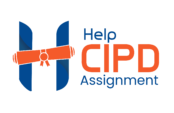
- CIPD Level 3 Course
- CIPD Level 5
- CIPD Level 7 Courses
- ILM Assignment Help
- CMI Assignment Help
5CO03 Professional Behaviours and Valuing People Task One Guideline
- February 24, 2022
- Posted by: admin
- Category: CIPD Level 5

Introduction to the 5CO03 Unit
The purpose of 5CO03 Professional Behaviours and Valuing People is to determine the role of people professionals in establishing positive working relationships. The organisation accomplishes this by analysing its ethical practices and other core behaviours that enhance the performance of its people. This unit will teach how people professionals can apply their personal and ethical values to create an ethical culture and make decisions that positively impact others and the organisation. In the unit, inclusiveness and collaboration in the workplace have been discussed and the benefits on the organisation and the employees. This unit also analyses people’s development as they evolve within an organisation. Professionals in the human resources field should be committed to learning new skills to improve their performance.
Task One: Present ethical practices in business
The task one assignment is a presentation with 1-2 slides for each assessment criterion and presenter notes. In the presentation, we explain how ethical practices enhance workplace relationships.
AC 1.1 Explain the term professional and what it means to be a people professional.
Defining the term “professional” is required in the question—those who perform their tasks and compete for their duties as professionals practice knowledge and use skills. In addition to their expertise in influencing and inspiring people, people professionals use the core behaviours in the CIPD Professional Map to guide their actions.
Students should mention that the CIPD Professional Map was designed and developed. The purpose of this framework has been to clarify the principles, evidence, and outcomes that people professionals need to champion for better work and improved relationships.
AC 1.2 Give at least three examples of how your ethical values affect how you work and develop working relationships so that you can explain what ethical values are.
The following are some examples of personal values that students should discuss:
- Inclusivity
- Evidence-based decision-making
- Professional integrity
They explain how personal values assist them in making appropriate decisions that contribute to professional success. Further, these personal values provide insight into how behaviours and values shape relationships. In addition, learners should explain how to value cultural differences and different expectations.
AC 1.3, 1.5 Using your professional or personal experiences, explain how you can/have;- Contributed to discussions to ensure people practices are applied;- Communicated effectively to engage and influence others; and how you might raise issues with policy or practice issues that conflict with legislation or ethical values.
AC 1.3 asks learners to explain why professionals should be informed and use their values when participating courageously in discussions. People professionals must speak up for themselves and ensure that human resources, organisation design, and learning and development concepts are fulfilled to create value for all workers. This question discusses how companies engage with businesses, economies, and societies to promote better working conditions.
Providing suitable communication styles and platforms for information exchange is a crucial part of engagement in the workplace. Tone and pacing are essential variations to consider, attention when communicating, and communication skills and evidence when communicating and making decisions.
AC 1.5 asks learners to raise issues by considering organisational policies and leadership styles that might cause conflict. In addition to learning the different types of conflict, legal issues, and ethical values, professionals should think about how and when to raise issues. For example, professionals in human resources should discuss topics that conflict with ethical values when organisations face the challenge of whistleblowing.
AC 2.1 Using relevant theory, present a robust argument demonstrating the business and human benefits of having people feel included, valued and fair at work.
Inclusion, respect, and fair treatment of others have the following benefits:
- Job satisfaction increased
- A positive reputation for the company
- Retention of employees
- Conflict resolution improved
- Reduced sick leave and absenteeism
- Efficiencies and effectiveness improved
In addition to explaining the value of valuing and including people at work, learners should explain relevant theories that emphasise the value of valuing and including people. Examples of theories that students should discuss include:
- Maslow’s hierarchy theory
- Worker engagement
- Worker wellbeing
- McLelland theory
- David Rock theorist
AC 2.2, 2.3 Explain an initiative for improving people practices implemented in response to feedback from internal and external sources, how it works, and the benefits.
The learning and development initiative, developed through employee feedback and engagement, is an example of a people practice initiative. Partnering with partners and collaborating with them on designing solutions to the issues and initiatives examined to deliver effective solutions is part of professionals.
Learning outcomes should include explaining how to promote engagement at work through formal and informal feedback. For example, professionals engage in various engagement methods, such as emails, document exchanges that facilitate feedback, discussions among professionals, and consultations.
It is essential to evaluate how solutions contribute to influencing and engaging people in an organisation;-
- Influence people’s opinions
- Encourage people to accept change by creating a need for it
- If necessary, change your drive
As part of the assessment, the learners analyse how solutions consider different people and organisational needs to impact the organisation positively. After completing the assessment, students should complete the second part of the 5CO03 assignment.
Related Articles:


5CO03 – Professional Behaviours and Valuing People
Recently viewed articles.
- 5CO03 Assignment Examples
Leave a Comment Cancel reply
You must be logged in to post a comment.
Or copy link
www.cipdforum.co.uk

- +44 2871140060
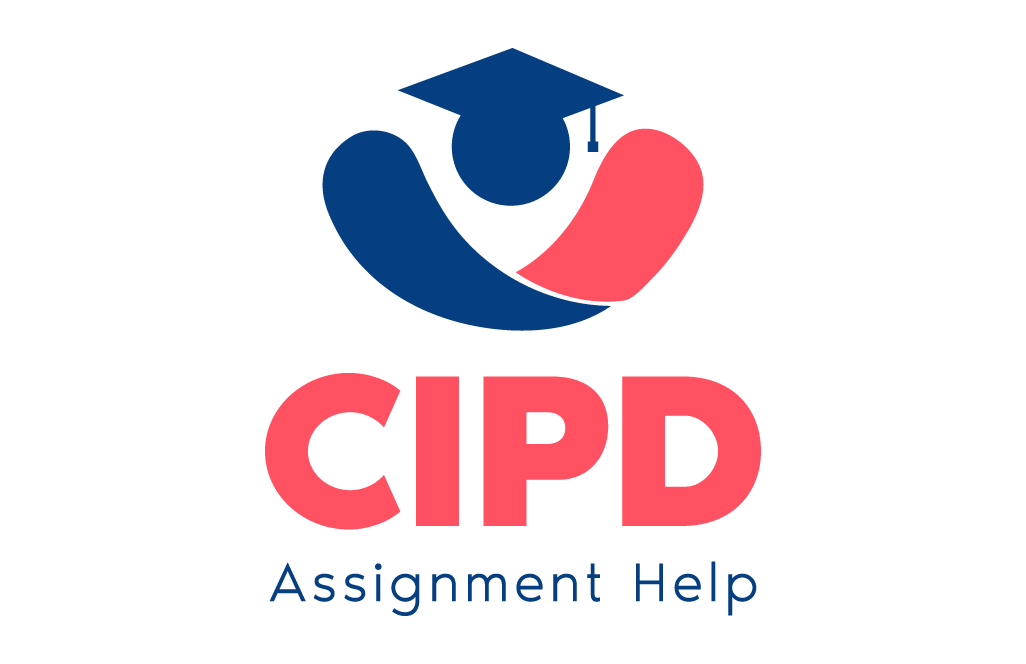
- Terms of Service
5CO03 PROFESSIONAL BEHAVIOURS AND VALUING PEOPLE TASK ONE GUIDELINE
- October 18, 2022
- Posted by: Fletcher Samuel
- Category: CIPD Level 5

A brief introduction to the 5CO03 unit
In 5CO03 Professional Behaviours and Valuing People, the role of the people professional in fostering productive working relationships is discussed. They accomplish this by examining their ethical standards and other fundamental behaviours that raise employee productivity. The unit offers insight into how human resources professionals should apply their moral principles to build an ethical workplace culture and make wise choices that will benefit both the organization and its stakeholders. The unit has discussed workplace inclusivity and collaboration issues as well as their advantages for both the organization and the workforce. The unit also emphasizes analyzing how individuals develop over time within an organization. Professionals should be dedicated to learning to increase their skill sets and enhance their work output.
Ethical Practices in Business: Task One
The first task is a presentation with one to two slides for each criterion of evaluation and presenter notes. The purpose of the presentation is to highlight how crucial ethical behaviour is to foster positive working relationships.
AC 1.1 Define the term professional and explain the requirements of a people professional.
The guideline
Learners are asked to define the word “professional” in the question. A professional is someone who competes for their duties by practising, using their knowledge, and using their skills. People managers are experts at motivating and inspiring others, and they help others use the CIPD Professional Map’s core behaviours to direct their own behaviour.
The design and development of the CIPD Professional Map should be mentioned by learners. This framework has been developed to clarify the ideas, data, and results that human resources professionals must promote to enhance productivity and coworker relations.
AC 1.2 To help explain what is meant by ethical values, give at least three examples of your values and how this affects how you work and develop working relationships.
The following are some examples of personal values that students should discuss:
- Inclusivity
- decision-making based on facts
- professional ethics
Learners describe how their values guide their work and decision-making, enabling them to add value to the job. These individual values also shed light on the attitudes and principles that influence professional interactions. Learners should also discuss respecting cultural diversity and varying expectations.
AC 1.3, 1.5 Drawing upon work or personal examples, analyse how you could/have;- Contributed to discussions to ensure people practices are applied, How you can effectively communicate to engage and influence others, and how you might raise issues with situations such as organisational policies and approaches to leadership that conflict with legislation or ethical values.
Learners are expected to justify the need for professionals to be informed in AC 1.3 and to use their values to participate courageously in discussions. To ensure that the concepts of human resources, organizational design, and learning and development are fulfilled to create value for all workers, people professionals should have a voice and should speak up. How organizations interact with businesses, economies, and society while promoting better working conditions is an important topic to discuss.
Establishing appropriate communication platforms and styles in the workplace is a key component of engagement. Tone and pacing, paying attention while communicating, taking communication skills into account, and using evidence when communicating and making decisions are all significant variations to take into account.
Students responding to AC 1.5 should raise concerns by taking the organization’s policies into account and analyzing the various leadership philosophies that could lead to conflict. People specialists should research the various conflict styles, legal considerations, and ethical principles that govern when and how to raise issues. When organizations face the challenge of whistleblowing, for instance, human resources professionals should bring up issues that run counter to ethical principles.
AC 2.1 Drawing on relevant theory, provide a robust argument that includes both the business and human benefits of people at work feeling included, valued and treated fairly
The following advantages come from including, valuing, and treating others fairly:
- an increase in job satisfaction
- positive reputation for the company
- retaining personnel
- better methods for resolving disputes
- decreased absences and illness
- increased productivity and efficiency
Learners should explain pertinent theories that emphasize valuing and including people after outlining the advantages of doing so in the workplace. The following are some theories that students should discuss:
- Maslow’s hierarchy theory
- Worker engagement
- Worker wellbeing
- McLelland theory
- David Rock theorist
AC 2.2, 2.3 Identify a people practice initiative that has been put in place in response to internal and external feedback, set up the purpose of the initiative and explain the impact of the initiative.
The learning and development initiative, which grows from employee feedback and engagement, is an illustration of a people practice initiative. People specialists collaborate with partners to design solutions to the issues and initiatives looked at to provide the most efficient solutions.
The students should discuss how feedback, both formal and informal, affects workplace engagement. Professionals use a variety of engagement techniques, including emails, professional discussions, and documentary exchanges that help identify feedback and consultations.
The evaluation of how solutions affect influencing and engaging people in an organization leads to the realization that;
- Make a change in perception
- help people realize they must accept change
- Drive alterations as required
Students then complete the assessment by analyzing how solutions take into account various organizational needs and the needs of different people to have a positive organizational impact. The students should be ready to complete task two of the 5CO03 assignment after finishing the assessment.
- 5co03 Assignment Example
- 5CO03 Professional Behaviours and Valuing People
Comments are closed.
Our writing service is available in the UK, USA, Ireland, Canada, Australia, Saudi Arabia, Singapore, and other countries around the world.

Did you enjoy our articles?
Click the order button below to get a high-quality paper.
You can talk to the writer using our messaging system and keep track of how your assignment is going.

To get proper understanding of learning and behaviour is important at CIPD level 5. CIPD level 5 is associate diploma in people management, in this diploma you are going to learn behaviour of people professionals and ethical practices, this encourages and strengthen the relationship between organization and employees.
This module is called module 3 CIPD CO03 professional behaviours and valuing people of level 5, in this module you will gain the opportunity to learn ethical and core values of people professionals, which includes behaviour, positive working environment, creating solutions, learning the evolution of people professional practices, identifying the strengths and weaknesses through CIPD activities.
Here we have created a sample for CIPD aspirants in UK, USA, KSA, to help them to understand about this module and which factors that they should cover.
Table of Contents
1) cipd 5co03 assignment task: get proper knowledge to demonstrate ethical and professional behaviour, in people professional’s context..
· 1.1 Define the meaning of being a people professional.
· 1.2 Determine and recognize the ethical and professional values which can be applied in the context of people professionals.
· 1.3 How people professionals contribute to influence others in a discussion.
2) 5CO03 Activity 2 CIPD Level 5: A people professional must be able to master inclusive and collaborative strategies for building positive working relationships.
· 2.1 Plot a friendly argue about human and business benefits of people feelings.
· 2.2 Define different strategies to ensure inclusive people practices.
3) CIPD 5CO03 Learning Outcome: As a people professional demonstrate your personal commitment to learning, improving your performance and professional development.
· 3.1Research and define how the role of a people professional is evolving and the implications this has for continuing professional development.
· 3.2 Support your learning journey by formulating different types of formal and/or informal continuing professional development (CPD) activities.
· 3.2.1 Formal CPD Activities:
· 3.2.2 Informal CPD Activities:
4) Get high quality top end CIPD level 5 assignment solutions by our experts.

1.1 Define the meaning of being a people professional.
A people professional is a person who is responsible for effectiveness and well-being of people in an organization. This mainly includes the roles of HR officials such as, recruiting, training, and employee relations. But it also talks about the roles which does not come under the roles of HR officials like ensuring healthy culture in an organization, productivity of employee’s etcetera.
To be a people professional you have to gain deep understanding of human behaviour, and the ability to influence others. It’s not a piece of cake to be a people professional, every person cannot become a good people professional.
1.2 Determine and recognize the ethical and professional values which can be applied in the context of people professionals.
It is really important to realise that ethical and personal values can be applied in context of people professionals. It means that while we are interacting with someone we should keep in mind that, we should interact with them in a respectable way and always consider their values and believes before having any conversation.
Moreover when we are aware of ethical and personal values, we can identify that at which point they are compromising. It is really important that when this happens you should always take instant action to uphold these values.
While doing this you should not only protect yourself from getting harm, but one should also adopt a behaviour just like that which he is expecting from others.
1.3 How people professionals contribute to influence others in a discussion.
It is an important skill for People professionals to learn about their unique position to contribute to A discussions in such a way that is informed, confident and clear.
The ability to communicate effectively, think critically, and build relationships are an important skills for people professionals. By sharing their expertise and insight, people professionals are helpful in making informed decisions. They can inspire others and also contribute by their side to make positive changes in an organization.
2.1 Plot a friendly argue about human and business benefits of people feelings.
It is really important that in an organization the work force feel valued, included and fairly treated.
It results in positive engagement, motivation and also provides better business outcomes. It is the role of people professional to master collaborative and inclusive strategies, this helps to ensure all the employees feel valued.
Herzberg’s Two-Factor Theory is an important theory which highlights the importance and value of people. This theory suggests that there are two key factors that contribute to employee satisfaction: hygiene factors and motivators. Hygiene factors are things like pay and working conditions, which if not up to scratch can result in dissatisfaction.
2.2 Define different strategies to ensure inclusive people practices.
There are plenty of strategies that you can follow but there are some key strategies to design and ensure inclusive people practice in an organization.
· First of all it is important to be committed to inclusivity at the highest level within an organization.
· Secondly, leadership must set a model of inclusive behaviours by their acts and deeds. Also leadership must provide employees with opportunities to interact with people from diverse backgrounds.
· Lastly, it is important to regularly monitor progress and identify areas of improvements. By taking such initiatives, an organization can create a more inclusive environment for all employees step by step.
3.1 Research and define how the role of a people professional is evolving and the implications this has for continuing professional development.
People professionals play important role in evolving of the management system in an organization, as the workforce becomes more complex and diverse. To be competitive, it is really for a people professional to continue his learning and learn new things according to the new era to deal with the difficulties in an organization.
Key skills that people professionals need are as follows:
· Communication.
· Diversity and Inclusion.
· Employee Relations.
· HR Administration.
· Training and Development.
3.2 Support your learning journey by formulating different types of formal and/or informal continuing professional development (CIPD) activities.
To help you on tour CIPD learning journey we have defined some key points of formal and informal CIPD activities. These points are mentioned below:
3.2.1 Formal CIPD Activities:
Some key points of formal cipd activities are mentioned below:.
· Undertake Further Study
· Attend Professional Development Seminars and Workshops.
· Get Involved in Professional Organizations
· Read Professional Journals and Magazines.
3.2.2 Informal CIPD Activities:
Some key points of informal cipd activities are mentioned below:.
· Stay Connected With Other Professionals.
· Take Online Courses.
· Read Books and Articles.
· Experiment and Try New Things.
Are you struggling to get high quality CIPD help online? Then, you are at the right lace, CIPD writers is designed especially for CIPD aspirants like you to provide you with best possible CIPD help. Our writers have multiple years of experience to write CIPD assignments of level 5, we know all the rules and regulations of CIPD. Each assignment which is written by our writing team is written from scratch, according to the needs of our customers and always fills each and every criteria of CIPD diploma.
So don’t waste any time get your CIPD help today from our site in UK, USA, KSA. Our customer representatives are available 24/7 to guide you. Order now your CIPD assignment and get highest grades in your CIPD diploma.
CIPD Assignment Examples From The Best Writers
Looking for CIPD assignment Examples? This is the right place for you to instantly get free CIPD assignment examples with references for all CIPD Level 3, 5, & 7 assignments.
We also provide the best online CIPD assignment writing service in UK by professional writers at cheap price.
Hire The Best CIPD Assignment Writer Today
What is cipd.
CIPD is the professional body for Human Resources and people development. It’s for people who looking to transition into Human resources or advance the career in HR. CIPD professional body has over 150,000 members around the world. CIPD is a recognized professional certificate in different parts of the world.
Having the title CIPD in your resume makes you very competitive in the job market. The good thing about CIPD is that you can join even if you don’t have any experience in Human resource management.
7 Stages Where You Can Join the CIPD Program
- CIPD Student Member – Joining as a student member gives you access to materials that help you with your studies.
- Foundation Member – This is when you start from the very bottom because you don’t have any experience, and you have never worked in Human resources. At this level, you are exposed to the foundation knowledge and skill you need to have to be an HR professional.
- CIPD Associate Member – This is for people who are approaching mid-level HR professionals. This level is for people who already have foundation knowledge, and have worked in the lower level, for example, HR assistants, HR coordinators, and HR administrators. A CIPD associate member is ideal for someone who has had some entry-level experience for 2-3 years.
- CIPD Chartered Membership – This is a more seasoned HR profession. You need to have upwards of 5 years of experience working in HR.
- CIPD Chartered Fellow – This is for professionals whose experience and skills are top-notch.
- Academic Member Great – This is for people teaching and lecturing in the area of human resources, and learning and development. This is a good level for people looking to start teaching Human resources.
- Affiliate Member – This is for members who do lots of research and study on Human Resources.
CIPD ASSIGNMENT EXAMPLES
Cipd level 3 assignments examples.
- CIPD 3CO01 Business, culture, and cha nge in context
- CIPD 3CO02 Principles of analytics
- CIPD 3CO03 Core behaviors for people professionals
- CIPD 3CO04 Essentials of people practice
CIPD Level 5 Assignments Examples
- CIPD 5CO01 Organizational performance and culture in practice
- CIPD 5CO02 Evidence-based practice
- CIPD 5CO03 Professional behaviors and valuing people
- CIPD 5HR01 Employment relationship management
- CIPD 5HR02 Talent management and workforce planning
- CIPD 5HR03 The reward for performance and contribution
- CIPD 5LD01: Supporting Self-Directed and Social Learning
- CIPD 5LD02 Learning and Development Design
- CIPD 5LD03 Facilitate personalized and performance-focused learning
- CIPD 5OS01 Specialist employment law
- CIPD 5OS02 advances in digital learning and development
- CIPD 5OSO3 Learning and Development Essentials
- CIPD 5OSO4 People management in an international context
- CIPD 5OS05 Diversity and inclusion
- CIPD 5OS06 Leadership and management development
- CIPD 5OS07 Well being at Work | CIPD Level 5 Assignment Help
CIPD Level 7 Assignments Examples
- CIPD 7CO01 Work and working lives in a changing business environment
- CIPD 7CO02 People management and development strategies for performance
- CIPD 7CO03 Personal effectiveness, ethics, and business acumen
- CIPD 7CO04 Business Research In People Practice
- CIPD 7HR01 Strategic employment relations
- CIPD 7HR02 Resourcing and talent management to sustain success
- CIPD 7HR03 Strategic reward management
- CIPD 7LD01 Organizational design and development
- CIPD 7OS01 Advanced employment law in practice
- CIPD 7LMD Leadership and Management Development
- CIPD 7OS03 Technology-enhanced learning
- CIPD 7OS04 Advanced diversity and inclusion
- CIPD 7OS05 Managing people in an international contex t
- CIPD 7OS06 Well Being at Work | CIPD Level 7 Examples
Don’t compromise on quality. Our CIPD Assignments help can service all your professional needs perfectly.
Automated page speed optimizations for fast site performance
- [email protected]
- +(44) 731-183-9056
CIPD 5CO03 Assignment Example | Professional behaviors and Valuing People
Are you struggling with your 5CO03 Assignment? You’ve come to the right place.
📍Use promo code “CIPD” on our website and get 20% off 😎 Let us know your deadline and we will do the rest correctly! 👍 Chat with us below, if you have any questions.
CIPD 5CO03 example Professional behaviors and Valuing People
Task 1 – assessment criteria.
1.1 Appraise what it means to be a people professional
1.2 Recognise how personal and ethical values can be applied in the context of people practice.
1.3 Contribute confidently to discussions in a clear, engaging, and informed way to influence others.
1.5 Recognise when and how you would raise matters which conflict with ethical values or legislation.
2.1 Argue the human and business benefits of people feeling included, valued, and fairly treated at work linking to related theory.
2.2 Design an impactful solution based on feedback and engagement with others.
2.3 Evaluate the impact of the solution to influence and engage people within an organization.
Task 2 – Assessment Criteria (Provide a rationale for judgments against each assessment criterion and identify areas for development)
2.1 Explore how the role of a people professional is evolving and the implications this has for the continuing professional development.
2.2 ess your strengths, weaknesses, and development areas based on self-assessment and feedback from others.
2.3 Formulate a range of formal and/or informal continuing professional development (CPD) activities to support your learning journey.
2.4 Reflect how you have taken responsibility for your work/actions, including recognizing and rectifying mistakes.
2.5 reflect on your own approach to working inclusively and building positive working relationships with others.
3.4 reflect on the impact of your continuing professional development activities on your own behavior and performance.
📍Use promo code “CIPD” and get 20% off
Sample Answer
Introduction: question 2.
Applying Professional behaviors will encourage a positive working relationship and increase the employee’s well-being.
Definition of the term professional 1.1
The term professional relates to an individual who generates his income through the performance of an activity in which skills, education as well as training is required or are paramount. This, therefore, indicates that professionals are members of a profession that connotes expertise and trust. The members of the group are always disciplined, and they adhere to ethical standards that are established by their professional body (Maslach, 2017). The professionals possess special skills as well as the knowledge that has been obtained from education, research, as well as training which is of high level, and the public recognizes it as such. The professionals utilize these for the benefit of others. The professionals should be persons of high moral integrity, and competence and should also promote the public good and they remain accountable to the society at large and those that they serve. For example, In My company, the HR role is to help the organization achieve its goals by recruiting, managing, and developing people CIPD, 2021. However, this is not only pegged on his or her ability, skills, and competence but rather on acting within the expected behavior.
Requirements for professional people 1.1
The professionals are guided by professional standards with which they should comply. They relate to a set of ethics, practices as well as behaviors that act as a guide to the professional members. These standards are normally established by the body which governs the respective profession. Examples of professional standards include accountability, loyalty, integrity, honesty, objectivity, law-abiding, confidentiality, fiduciary duty, self-control, reliability, and transparency (Wiley, 2000; Reamer, 2017). According to CIPD Profession Map: people professionals should take an evidence-based approach to their work, using organizational data, research, stakeholder insights and perspectives as well as professional expertise to deliver work that’s impactful(CIPD, 2021).
Personal and ethical values 1.2
There has been an increase in unethical behaviors within an organization. These behaviors are exhibited by all categories of employees within an organization ranging from the executives to the ordinary employees. These cases mainly arise as a result of the failure to exhibit professional values. A value refers to an individual’s belief that certain things are either bad or good and important or not important. Values are critical as they act as a guide in choosing one’s behavior and at the same time, help in evaluating the behavior of others…..
Task2: 5CO03 presentation example
Related posts.
- CIPD Level 7 Assignment Example
- CIPD 5HRF Assignment Example:
- CIPD Level 5 Assignment Example | Talent Management and Workforce Planning
Automated page speed optimizations for fast site performance







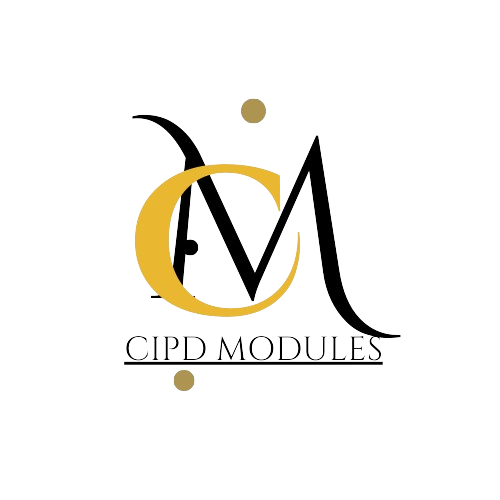

IMAGES
VIDEO
COMMENTS
5CO03 Professional behaviours and valuing people , 5CO03 Assignment Example will definitely guide you on how to tackle this homework. ... Disclaimer: CIPD Assignment Help is a custom writing service that provides online on-demand written work for assistance purposes. All the work should be used in accordance with the appropriate policies and ...
Task Two. 5CO03 Assignment Examples - Previous 5CO02 Assignment Example Next - 5CO03 Assignment Examples 5HR01 Assignment Example. Was this page helpful? Yes No. www.cipdforum.co.uk. Join with your email address. Join Now. Quick Links. Get Involved / Ask.
CIPD professional map outlines that a people professional should be ethical, courageous, and influential, value other people, value inclusion and diversity, have the passion to learn, be insight focused, and a sound decision maker. Specialist knowledge- this covers the different areas where a people professional could specialize on.
1 CIPD 5CO03 Assignment Task 1: Be able to demonstrate professional and ethical behaviours, in the context of people practice. 1.1 1.1 Appraise what it means to be a people professional. 1.2 1.2 Recognise how personal and ethical values can be applied in the context of people practice. 1.3 1.3 Consider the importance of people professionals ...
Activity 3 - Reflective Practice. Taking Responsibility. In my early years as a professional, I once observed a member of my team engaging in conduct that violated the company's regulations. However, I was new to the team and had no idea how to handle the matter, I remained silent. After some time passed, it became apparent that the firm ...
The difficult areas of this level include the unit Professional Behaviours and Valuing People 5co03 in which students are required to demonstrate real-world examples with great logistics explanation of assessment criteria that cater for all learning outcomes of the unit. If you are dealing with such issues you can enjoy our incredible ...
Unit description. In the realm of 5CO03, the orchestration of professional behaviours intertwines harmoniously with the art of valuing individuals. This intricate dance involves not merely adhering to a list of prescribed actions but rather embracing a profound commitment to nurturing robust inter employee connections while safeguarding their ...
Make sure you add reliable references as much as you can using a range of resources such as journal articles and CIPD podcasts to make your assignment critical and debatable. support your notes taken from the module contents with these references in addition to your real-life HR examples. Overall, he assignment should combine theories (or ...
Learn how to complete task one of 5CO03 Professional Behaviours and Valuing People unit, which focuses on ethical practice in business. See examples, theories, feedback and impact of people initiatives.
Learn how to present ethical practices and valuing people in business for 5CO03 unit. See examples, theories, and feedback sources for the assessment criteria.
abc 5co03 professional behaviours and valuing people learner assessment brief assessment id cipd_5co03_23_01 level associate diploma in people management. Skip to document. ... At the start of your assignment, you are encouraged to plan your assessment work with your Assessor and where appropriate agree milestones so that they can help you ...
5CO03 - Professional Behaviours and Valuing People. Updated on April 11, 2023. 5CO03 Assignment Examples.
In 5CO03 Professional Behaviours and Valuing People, the role of the people professional in fostering productive working relationships is discussed. They accomplish this by examining their ethical standards and other fundamental behaviours that raise employee productivity. The unit offers insight into how human resources professionals should ...
Here we have created a sample for CIPD aspirants in UK, USA, KSA, to help them to understand about this module and which factors that they should cover. Table of Contents 1) CIPD 5CO03 Assignment Task: Get proper knowledge to demonstrate ethical and professional behaviour, in people professional's context.
that the HR/L&D/OD purpose (for example as defined by the CIPD Profession Map) is clearly represented and can be effectively fulfilled. Techniques for informed, clear and engaging communication, for example: gaining attention; using volume, tone, and pace; summarising and checking understanding. Using listening skills and questioning to understand
Activity 1 - Self assessment and feedback from others. Activity 2 - Activities to develop areas of weakness. Activity 3 - Reflection on previous development. There are 2 different options for how you complete the 3 activities. These are: Option 1 - The CIPD Profession Map Learning Hub and Self-Assessment Tool.
The Assignment code (found on the front page of the Learer Brief) is Assessment ID / CIPD_5CO03_23_01. Thirdly and finally - The CIPD renew/revise their CORE assignments every year in June (cycle ex. 01 June 2022 to 31 May 2023). Each Learner Brief indicates the code (as I have shown above). Your 2022 brief will show Assessment ID / CIPD_5CO03 ...
CIPD Level 5 Assignments Examples. CIPD 5CO01 Organizational performance and culture in practice. CIPD 5CO02 Evidence-based practice. CIPD 5CO03 Professional behaviors and valuing people. CIPD 5HR01 Employment relationship management. CIPD 5HR02 Talent management and workforce planning. CIPD 5HR03 The reward for performance and contribution.
CIPD 5CO03 example Professional behaviors and Valuing People Task 1 - Assessment Criteria. 1.1 Appraise what it means to be a people professional. 1.2 Recognise how personal and ethical values can be applied in the context of people practice. 1.3 Contribute confidently to discussions in a clear, engaging, and informed way to influence others.